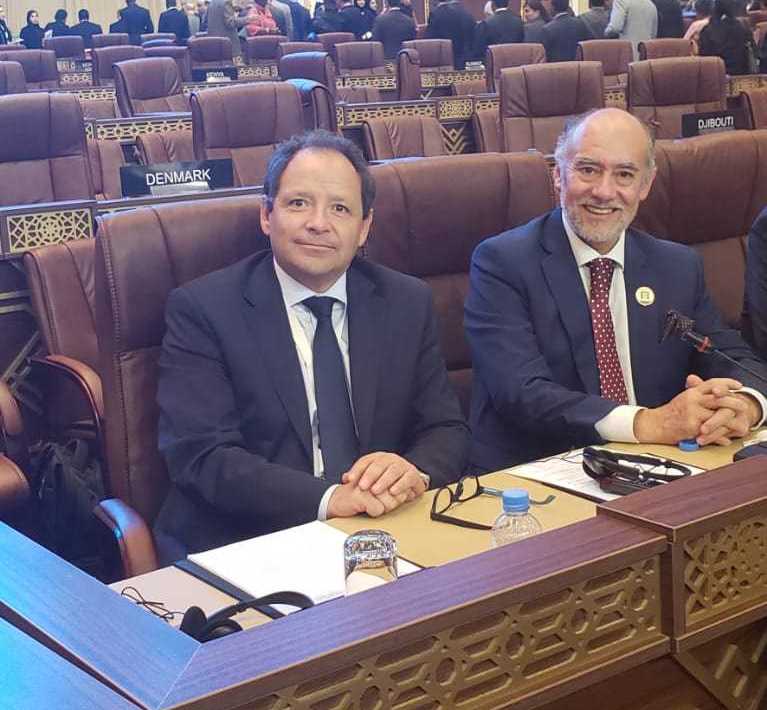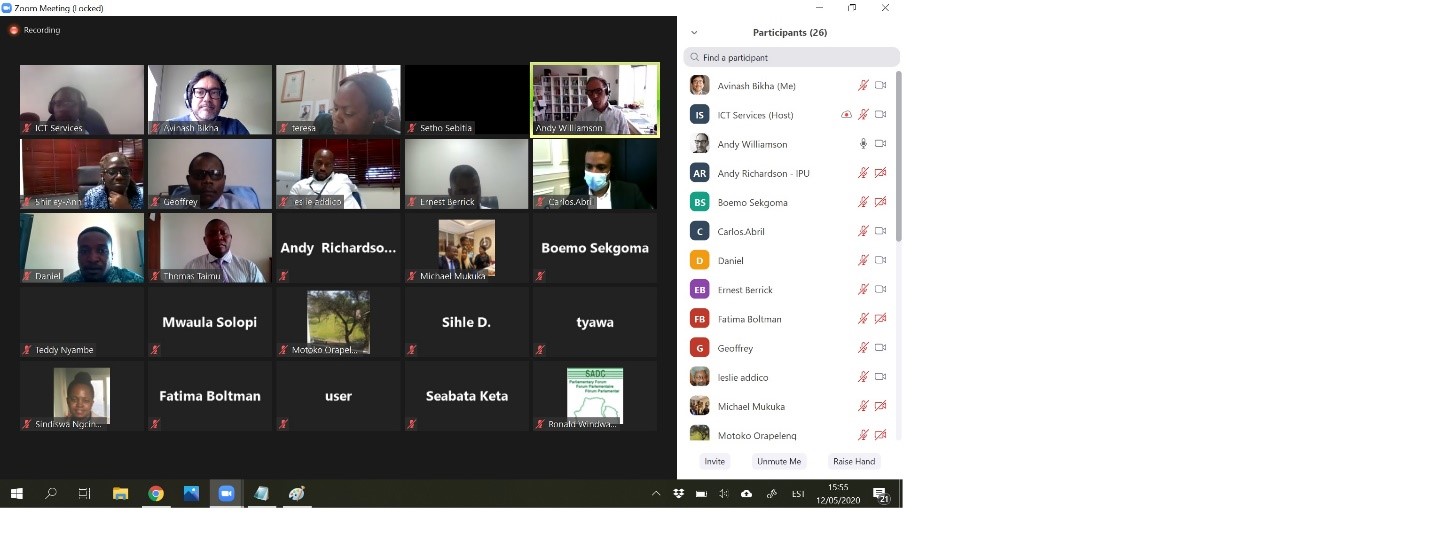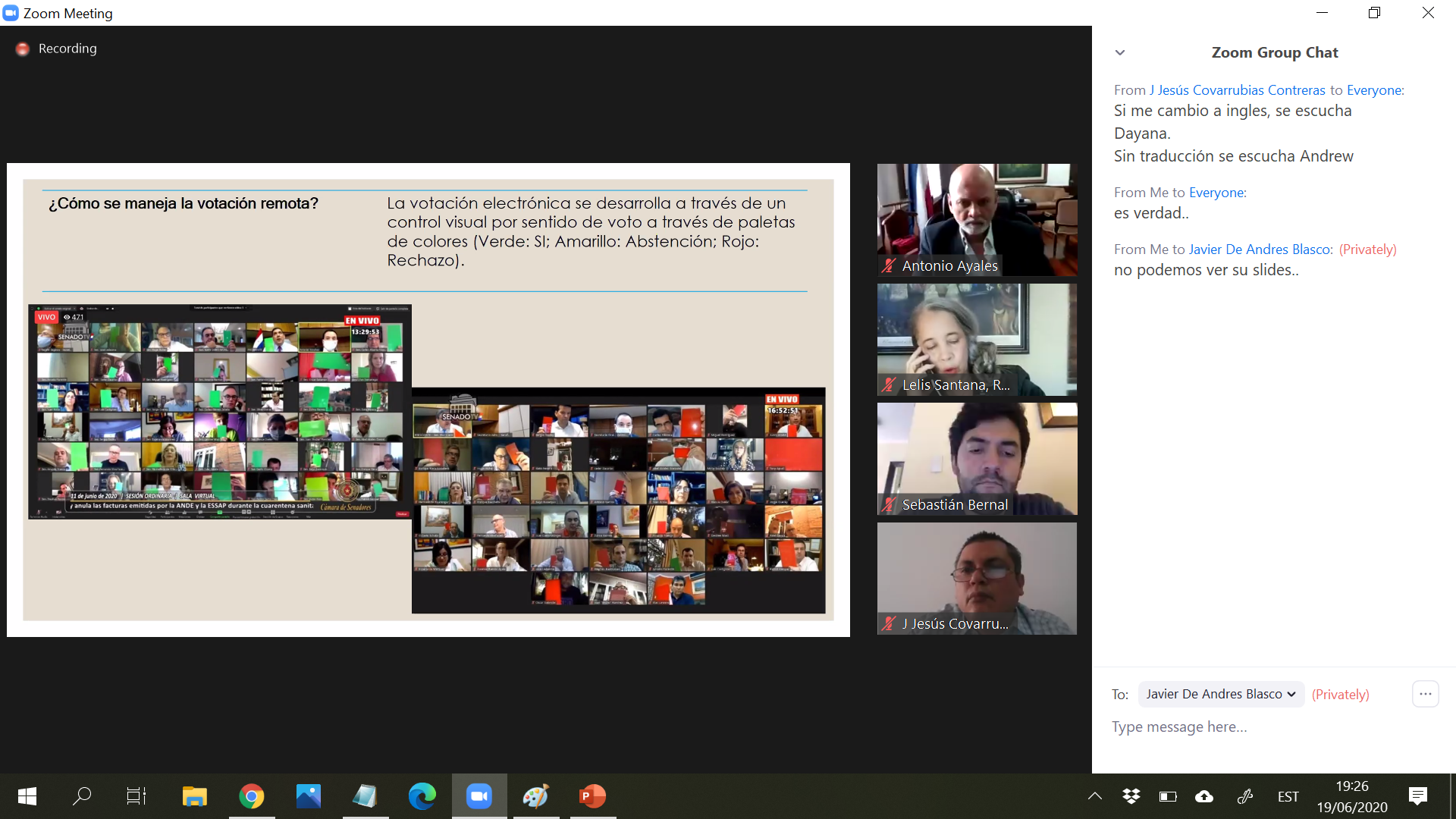The Chamber of Deputies of Chile took an active part in the meetings of the Centre for Innovation in Parliament during the 140th IPU Assembly in Doha. The participation of the Chamber’s Honourable President Iván Flores García and Pro-Secretary Luis Rojas further underlined its support for the Centre and the Hispanophone Hub.
The ICT Department of the Chamber of Deputies is working towards finalization of its hub’s online exchange platform. This platform, with features such as knowledge exchange spaces and a forum environment, is expected to be launched during a kick-off meeting with representatives of other Spanish-speaking Latin American parliaments later this year. Also envisaged are discussions among senior ICT staff on information and knowledge sharing needs and requirements within the regional hub, and how this is to be realized through the platform and other working modalities. Representatives of the ICT Department of the Chamber also took part in the May 2019 meeting of the Open Data Hub in Brasilia to learn more about its projects and activities, and to seek synergies and areas of collaboration.

Image: Honourable President and the Pro-Secretary of the Chamber of Deputies of Chile at the 140th IPU Assembly, Doha, April 2019. © Parliament of Chile







